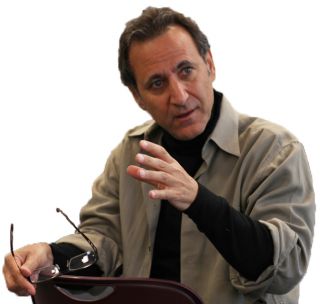Diet
Why She Ate: A Diet Story
Erica’s story: discovering the reason she ate
Posted November 13, 2013
Most people think diets work and that it is the dieters who “don’t work,” are undisciplined, self-sabotaging, etc. However, any review of unbiased research literature not done by the diet industry leads to the conclusion that, in fact, diets don’t work. Professor Steven of Brigham Young University says, "You would be hard-pressed to review the dietary literature and conclude that you can give people a set of dietary guidelines or restrictions that they will be able to follow in the long term and manage their weight successfully."[1] Dr. Glenn A. Gaesser, in his groundbreaking book Big Fat Lies: The Truth About Your Weight and Your Health concluded that 90 percent of dieters regain all the weight they lose. Similarly, Professor Traci Mann of UCLA, after conducting a comprehensive analysis of thirty-one diet studies, concluded that most dieters would have been better off never dieting at all since the majority of them gained all their weight back and more.[2]
What do these findings tell us? That despite all the massive efforts, promises made by the $60 billion diet industry, and negatives that get heaped on people who are heavy or obese – health problems, inner criticism and shame, outer criticism and prejudice—the hungers that drive people to eat are even more powerful. And, despite the fact that many consider this bad news (because it makes losing weight a whole lot more difficult and less sustainable), there is a silver lining: who we really are—our deepest needs, wants and desires—will not easily be ignored, silenced, or pushed aside regardless of the reason. Even under great adversity, our authentic selves prevail.
Erica’s Story: Discovering the Reason She Ate
Erica was about 28 years old. She was big-boned and strong in her demeanor, which was forthright and candid; she was steadfast in her eyes, which looked unwaveringly right at me. Erica said she had been dealing with weight issues only within the last year and a half. Here is an excerpt from our session together where we uncovered the meaning and motivation behind eating her favorite food.
Me: What is your favorite food?
Erica: Starbuck’s caramel mochas—generally 16 ounce. I used to order them with whole milk, now I use 2%; they’re not as good. They make me less fat, but the old ones were better. Sometimes I drink two in a day when things are really bad. (Erica described them with brightness in her eyes. It was as if she was talking about a great discovery like a miner reaching a vein of a long-looked-for ore, or an oilman raising his earth-bound drill bit to find it wet, black, and tarry.)
Me: Please speak freely about what is so good about them. Let go of all the criticism you have about your weight and drinking these mochas; just tell me about what it’s like to drink one.
Erica: They are just delicious; I look forward to them. I leave my house to get one and I live 20 minutes away from the nearest Starbucks. (She laughed with pride at the disclosure of her determination, even though she clearly also felt it was a bit absurd.)
It’s stupid to place so much importance on a cup of coffee. (As Erica described the pleasure of a Starbuck’s mocha, I noticed she was holding onto a plastic cup—a Starbuck’s cup—that was once filled with water.)
Me: I am noticing your hands wrapped around that cup. Can you show me what your hands are doing? Take them off the cup and show me how they are holding the cup.
Erica: They are like claws. (She took her hands off the cup; her fingers expressed a powerful tension as they bent forward.)
Me: Grab the water bottle on the table with those claw-like like hands of yours. (I wanted her to express the potency and passion in her “claw,” but the cardboard cup would have simply crumbled, so I offered her the 1.25 liter hard plastic bottle in front of me.)
Notice your hand—how it grasps and holds; notice the firmness, the intention, the feeling of your grip. When you’re ready, I am going to try to pull it away from you. Allow yourself to react freely. (Erica smiled kind of mischievously, and then as we looked at each other, she began to laugh. We both knew, instantly, how strong and determined she was. I pulled the bottle toward me, away from her. Her muscles became taut, her jaw stiffened a bit and her eyes became even more fixed as she pulled what the bottle toward herself, resisting my force.)
Me: What are you doing? (I wanted her to get in touch with what she wanted—whatever it was that was so important to her.)
Erica: I am holding onto the coffee.
Me: Let go; stop holding onto the coffee. Why do you need it so? What are you holding onto it so dearly? (I intentionally tried to wrestle the cup from her so that she could “feel” her grip, her desire, and her unwillingness to let go. I was acting like her current diet program which treated her caramel mochas as something to take away instead of understand.)
Erica: It’s my happiness. (Erica and I were both surprised; neither of us expected this answer.)
Me: Happiness? Why do you have to have to fight for your happiness?
Erica: Because I don’t have it. (As she spoke, her eyes began to water. We were both touched.) I can go get it at Starbucks. I placed my happiness into this one thing. Because if I need it, I can just go get it.
Me: What gets in the way of your happiness? (We were now on the road to exploring how to get what she really needed in her life. If I could help her get her “happiness” then it would be easier for her to relinquish her grip on the one thing she knew how to grasp and fight for—the caramel mochas.)
Erica: My family, my parents, my work. I want to focus more on myself and my own career. I want to be put first. I want to snap my fingers and everybody will do what I say. But I am always having to fit into a shape defined by other people and responsibilities.
Me: Can you imagine being that kind of person, who snaps her finger and gets what she wants?
Erica: It must be nice, I don’t know, I never had that. I think that is being spoiled. Except I can snap my fingers and drive 20 minutes to go to Starbucks. I don’t know if I can make other life changes that easily.
Erica and I subsequently developed a weight-loss program based on the insight she had. Yes, this included some additional exercise goals and an effort to be more aware of drinking caramel mochas, but the program also included getting clearer about the life changes she wanted to make and providing her with the psychic and emotional support she needed to make those life changes.
About one year later, Erica was divorced, pursuing new career options, exercising like a bandit, and at the weight she wanted to be. She snapped her fingers and grabbed her happiness. For Erica, her “hunger/thirst” for Starbucks coffee was actually a hunger for her real life, a life that would make her truly happy.
[1] Amanda Spake, “Stop Dieting! Forget the scale, the calorie counting, and forbidden foods. They may be doing more harm than good,” U.S. News and World Report, posted January 8, 2006, accessed October 31, 2011, http://health.usnews.com/usnews/health/articles/060116/16diet.htm.
[2] Traci Mann, A. Janet Tomiyama, Erika Westling, Ann-Marie Lew, Barbra Samuels, and Jason Chatman, “Medicare’s search for effective obesity treatments: Diets are not the answer,” American Psychologist, 62, no. 3 (2007): 220-233.
********************************
You might also like:
Shame, Body Image, and Weight Loss
Zen and the Art of Dieting: Part 6
Let’s Keep in Touch!

Let’s Keep in Touch!
To find out about recent interviews, articles, and events, click here.
Schedule a one-on-one counseling session: dbedrickspeak@mac.com
Follow me on Twitter.
Find me on Facebook.
To read more of my posts on this blog, click here.
I am the author of Talking Back to Dr. Phil: Alternatives to Mainstream Psychology. Signed copies of the book are for sale on my website: www.talkingbacktodrphil.com.
Author Photo by Lisa Blair Photography.




